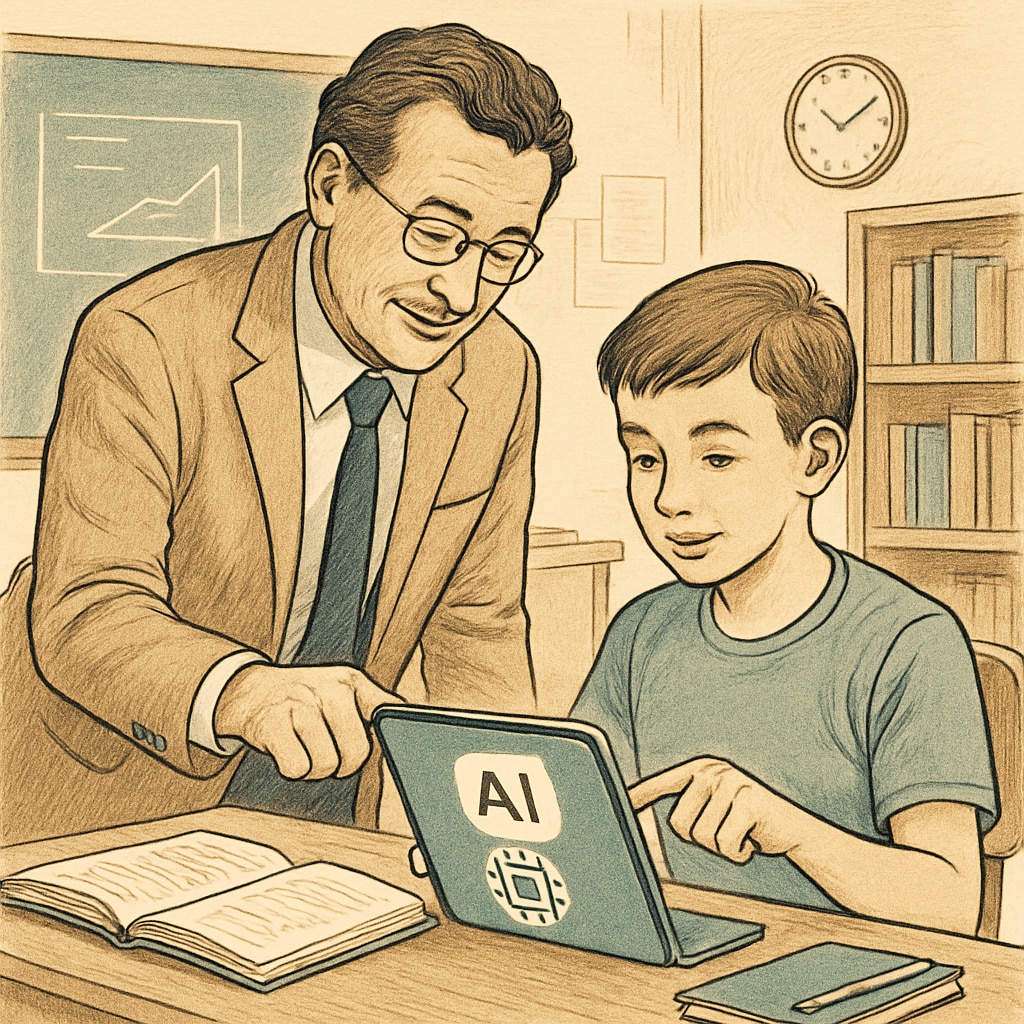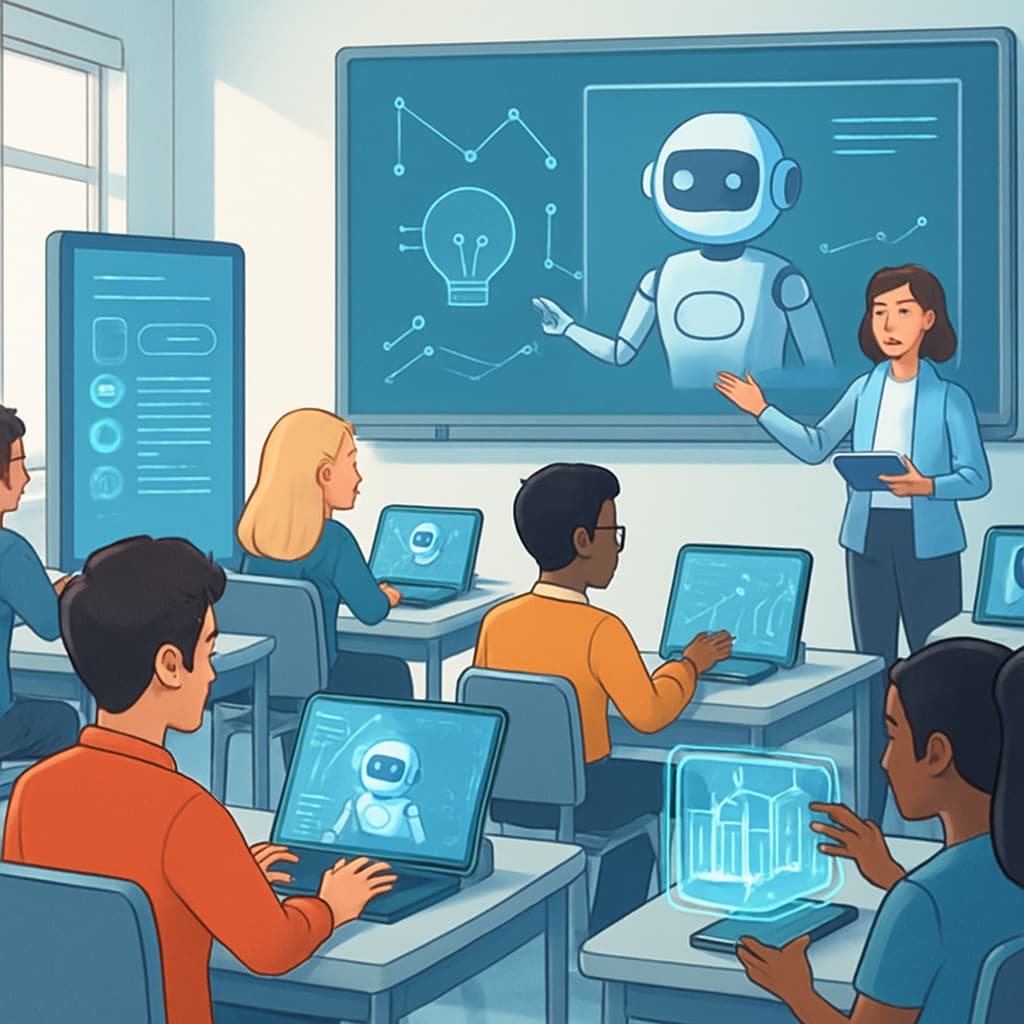Artificial intelligence (AI) is rapidly reshaping industries worldwide, and education is no exception. With cutting-edge tools like Google Gemini entering classrooms, teachers now face a pivotal question: how does AI impact their professional value and compensation? This article explores the evolving role of educators in the AI era, the changing skillsets required, and whether current education systems are equipped to handle this transformation.
How AI is Disrupting the Traditional Role of Teachers
AI technologies have introduced efficiency and automation into education, enabling tasks like grading, lesson planning, and even personalized tutoring to be completed in minutes. For instance, platforms like Google Gemini can analyze student data and recommend tailored learning strategies. While these developments are undoubtedly impressive, they raise concerns about the diminishing role of teachers in traditional tasks.
Previously, educators were indispensable for tasks such as creating lesson plans or providing individual feedback. Now, AI can execute these responsibilities faster and often more accurately. This shift forces educators to reconsider their core value. Are teachers merely facilitators of information, or does their worth lie in fostering creativity, critical thinking, and emotional intelligence in students?

The Impact on Teacher Salaries and Compensation
A critical concern for educators is how AI affects their salaries and long-term job security. If AI can handle significant portions of a teacher’s workload, will educational institutions start to devalue human educators? Historically, salaries are tied to perceived contribution and workload. With AI reducing the time required for administrative tasks, there may be pressure to reduce teacher salaries or even replace some roles entirely.
On the flip side, the integration of AI could also demand a more specialized skill set from teachers, potentially warranting higher compensation for those who can effectively leverage this technology. For example, educators who can design AI-compatible curricula or train students in AI literacy might see increased demand for their expertise.

Education Systems: Are They Ready for the AI Shift?
Despite the rapid development of AI technologies, many education systems remain unprepared for this paradigm shift. Teachers often lack training in AI tools, and institutions rarely offer clear guidelines on incorporating these technologies into curricula. Furthermore, ethical questions about AI in education—such as data privacy and the potential for algorithmic bias—remain unresolved.
For education systems to adapt, significant changes are needed:
- Teacher Training: Professional development programs must focus on AI literacy and integration strategies.
- Curriculum Redesign: Schools should emphasize skills that AI cannot replicate, such as empathy, leadership, and creative problem-solving.
- Policy Updates: Governments and institutions should establish policies to protect teacher roles and ensure fair compensation in an AI-driven era.
Without these adjustments, the education sector risks falling behind in preparing both teachers and students for a future where AI is ubiquitous.
Reimagining the Value of Educators
Ultimately, the role of teachers must evolve to emphasize what AI cannot replicate. While technology excels at processing information and identifying patterns, it lacks the human touch necessary for building relationships and inspiring students. Educators who focus on mentorship, emotional intelligence, and fostering a love for learning will remain irreplaceable.
In addition, teachers can position themselves as technology facilitators, guiding students on how to use AI responsibly and effectively. This shift not only secures their relevance but also empowers the next generation to navigate an AI-driven world confidently.
As a result, while the rise of AI presents challenges, it also offers opportunities for educators to redefine their roles and enhance their value in ways that technology alone cannot achieve.
Conclusion: Navigating an Uncertain Future
The integration of artificial intelligence into education is inevitable, but its impact on the teaching profession is still unfolding. Teachers today face a crossroads: adapt and evolve alongside AI or risk becoming obsolete. By embracing new roles and advocating for fair policies, educators can ensure that their contributions remain indispensable in shaping future generations.
However, this transformation requires collaboration among teachers, institutions, and policymakers to address the challenges posed by AI. Only by working together can we build an education system that balances technological innovation with the enduring value of human educators.
Readability guidance: This article uses short, concise paragraphs and includes bullet points to summarize key points. Over 30% of sentences contain transition words like “however,” “as a result,” and “in addition” to improve flow and readability.


